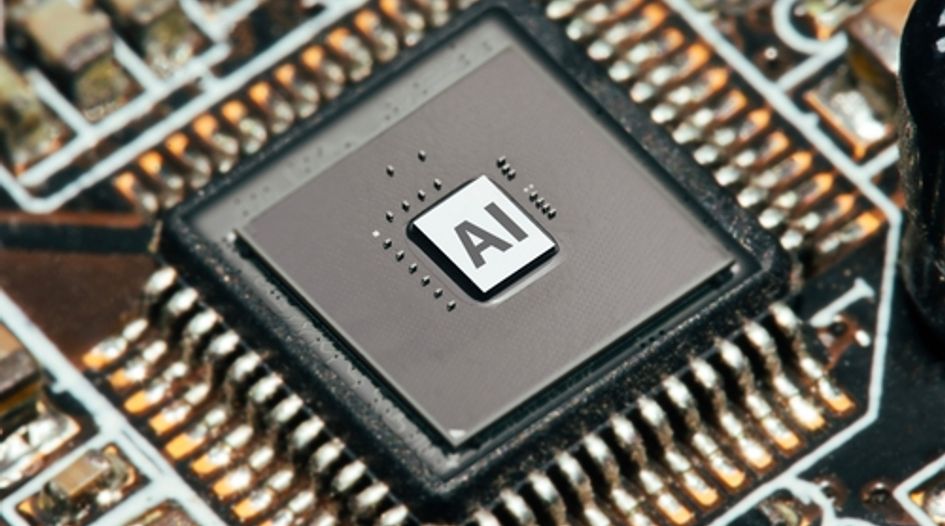The European Commission needs to assess whether platforms that incorporate artificial intelligence models into their wider ecosystems should be policed under the Digital Markets Act, France’s Competition Authority has said.
A range of competition concerns raised by the French enforcer would be caught and prohibited by the DMA if services that incorporate AI models were designated as gatekeepers under that ex ante regime, the agency said in a final report published today.
Drawing on findings from a consultation launched in February on the competitive functioning of the generative AI sector, it warned that Microsoft utilises its own AI models, and those developed by ChatGPT creator OpenAI, to enhance the functionality of its search engine Bing.
It said a range of other major tech companies are also providing access to AI models – often run by third parties – to enhance their services and ecosystems.
Thanks to their access to key inputs such as a “critical mass” of users, these tech companies have a huge advantage over their rivals, the agency said.
Promoting the report, French competition chief Benoît Cœuré said in a post on X today that the generative artificial intelligence market must not “be captured by a handful of big players”.
Several risks to competition exist in the AI sector, such as high barriers to entry caused by the inaccessibility of key inputs, the report said. This includes the need for specialised AI chips, the importance of cloud services and the requirement that developers be able to access large quantities of data to train their models.
Issuing a host of recommendations to lawmakers, the enforcer urged the government to facilitate the dissemination of data that market entrants could use to help train artificial intelligence models, reducing barriers to entry in the sector.
It stressed the importance of making French language data available to ensure it is adequately represented in AI models, given that English currently predominates.
Citing Alphabet, Amazon, Apple, Meta, Microsoft and Nvidia as the major players in the AI value chain, the report called on the French government to help create publicly accessible supercomputers that market entrants could use, which would reduce their reliance on computing power controlled by incumbents.
Major technology companies like Microsoft and Google have an advantage when it comes to attracting rare, highly sought-after skills in the labour market, such as data science expertise. They would also have an advantage in accessing key inputs, as they can secure better deals with content creators and use their own platforms and products to obtain data, the report said.
Nvidia, which was the target of a dawn raid in September 2023, remains dominant in the graphics card chip sector, the agency noted. That sector, which is essential for the development of generative AI models, is under intensive scrutiny from the enforcer’s investigative services.
The report flagged a high risk of abuse of dominance and unlawful collusion among chip providers, with the AI sector overly dependent on Nvidia’s CUDA chip programming software, which is essential for developing AI models.
Meanwhile, a lack of transparency exists when it comes to minority investments and partnerships between major platforms and AI developers, which can make it difficult to determine threats to competition as a result of consolidation, the agency warned.
‘Undersized solutions’
It has taken the competition community years to learn the lessons of past errors when policing the world’s most powerful tech platforms, but the speed of development and growth in AI markets has the potential to cause worse problems, Cœuré said today at the EU Workshop on Competition in Virtual Worlds and Generative AI.
Laurence Bary, a partner at Dechert in Brussels, said some of the report’s proposed solutions seem “undersized”. It is unlikely, for example, that the development of publicly-owned computing power could solve the issue of access for all the companies that are currently working on AI, she said.
Meanwhile, urging the EU to assess whether certain companies in the AI sector should be given gatekeeper designations under the DMA is not very “actionable”, Bary said. The DMA has a list of core platform services that it covers and AI is not one of them, she said.
Nvidia’s activities, for instance, do not fall under any of the core platform services currently covered by the DMA, Bary said. In order to define such companies as gatekeepers, the text of the regulation would have to be amended, which though possible, would take some time, she added.
The DMA does allow for cloud computing services – a key AI input – to be designated, but the commission has thus far been reluctant to take that leap. The European Parliament added that proposal, which was not part of the commission’s original plans, Bary said.
French sector inquiries are normally followed by enforcement, she added. The agency may decide to take action if it fears the market may be on the brink of tipping in favour of digital giants such as Google or Amazon, Bary said.
Romain Maulin, a partner at Maulin Avocats in Paris, said it remains to be seen whether the French government, which could be due for a major shakeup following a general election on Sunday, will carry the enforcer’s recommendations forward.

